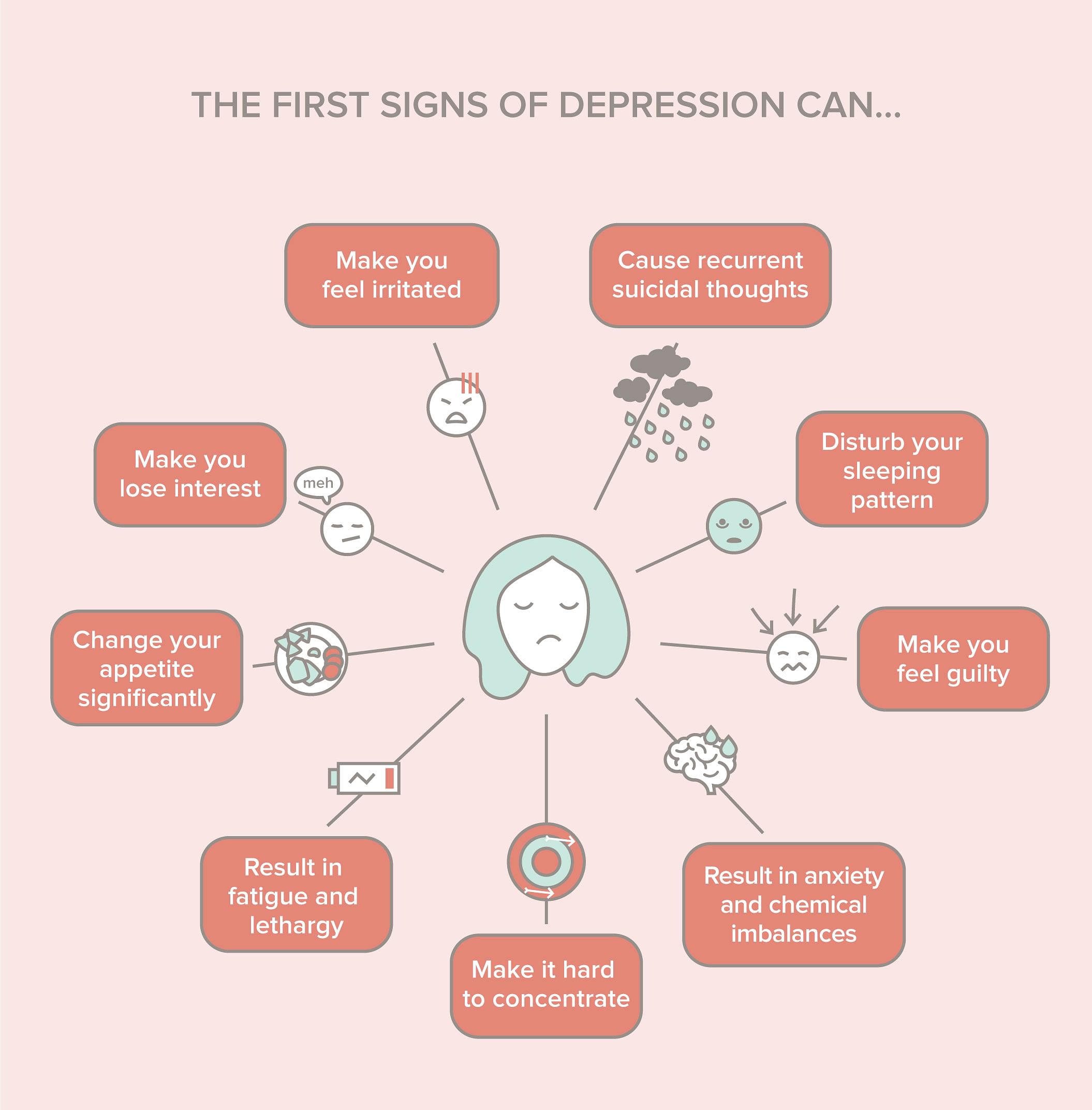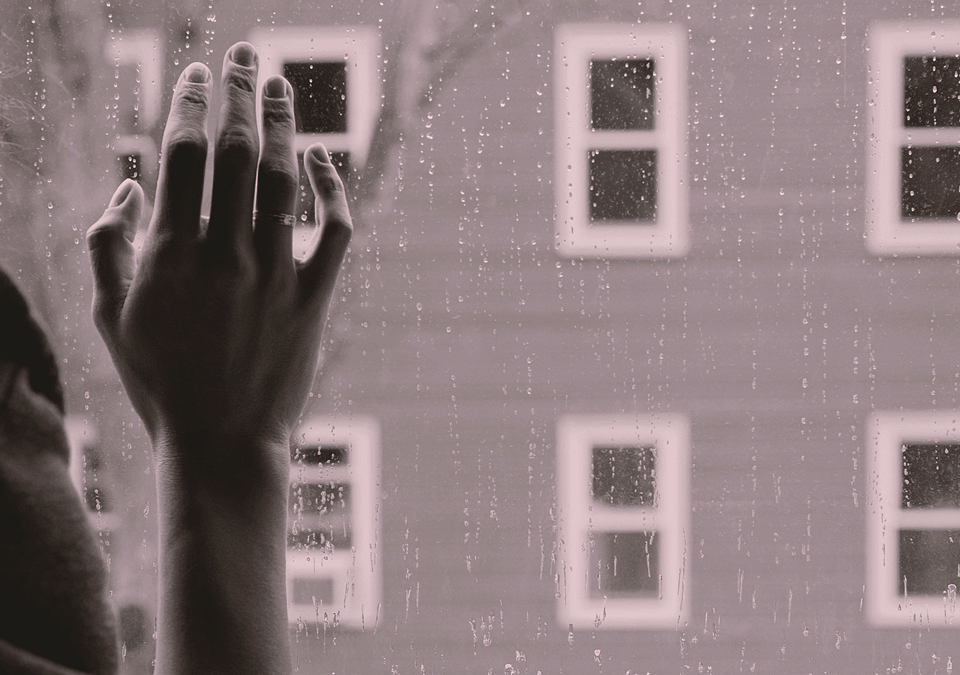In India, nearly 1 in every 6 individuals is diagnosed with depression. Studies say that India is one of the most depressed countries in the world. If not taken seriously, the symptoms can last for weeks and months affecting our life – personal and professional. It can also influence our ability to perform everyday functions including daily chores and personal hygiene. It is a real illness that debilitates our full functioning and, therefore, should not be taken lightly. To understand how to take care of yourself, it is important to first recognise the signs of depression and symptoms of depression.
In order to do so, here are some of the first signs of depression you should know about:
Depressed mood through the day
This can be explained as a feeling of sadness, distress, melancholy, unhappiness or general gloom that takes over our lives. Sometimes there may be one or a few reasons for it, and sometimes we cannot even pinpoint any. This may even result in random crying spells through the day. For children and adolescents, and sometimes adults, this depressed mood may even come across as irritation. It can lead to extreme low self-esteem, confidence, and hopelessness towards the future.
Lack of interest
Lack of interest or pleasure in activities is the second symptom of depression. Things that we liked to do before begin to feel like mundane chores. Often, others may not understand this and may end up calling the person lazy. But actually they genuinely do not find anything enjoyable anymore and carrying out daily functional activities becomes a task.
Change in appetite
Unintentional change in weight or appetite is the third symptom of depression. We may go through significant weight loss or gain without necessarily trying to do so
Tiredness and fatigue
When depressed, we may feel tired and fatigued all the time. A feeling of lethargy takes over us. We may not even have the energy to get out of bed. We may wonder what has made us so tired as we may not be mentally or physically overworked.
It’s important to be kind and patient with ourselves and try doing one thing at a time allowing our body to recoup!
Inability to concentrate
Concentrating becomes extremely difficult when suffering from depression. We get distracted not only while working, but also in the middle of conversations and can lose our train of thought very easily. It’s important to not get overwhelmed and recognise it as a symptom of depression.
Psychomotor change
Depression also causes psychomotor changes. It is not mere restlessness or slowing down, but can be a result of anxiety and chemical imbalances in the brain. It causes an individual to make involuntary movements like twitching, tapping, and leg shaking.
Feelings of guilt and worthlessness
Feelings of worthlessness and an inappropriate amount of guilt are very important and common symptoms of depression. We feel that we don’t deserve anything and are simply a burden on our family and friends. It is important to remember that these are not just feelings but signs of depression.
Disturbed sleep
Disturbed sleep is another very common symptom of depression. This can be insomnia, early morning wakefulness or sleeping too much.
Suicidal thoughts
Recurrent thoughts of death, suicidal ideas with or without a plan, self harm and a suicide attempt can be the result of depression. Sometimes this is due to the absolute frustration that the darkness of depression brings. While sometimes one may not necessarily want to end their lives but get these thoughts regardless.

If you or a loved one is feeling any of these symptoms, please reach out for help. There is no point in suffering alone.
Your problems are real and there is no reason in letting a problem escalate and become more!
We understand that mental health is a priority for all of us and our expert is here to ensure that we are well-informed. Read up on our articles about mental well-being right here. You can also find our mental health expert, Ishita Pateria’s articles right here.



